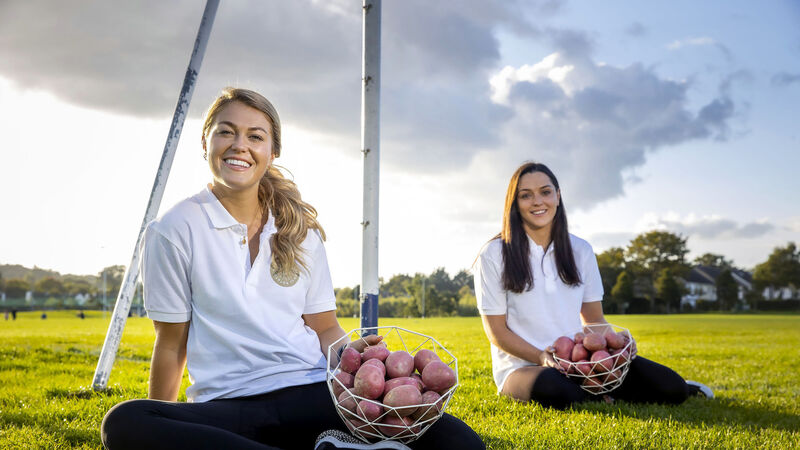Spud-you-like: Humble potato plays key role in sports nutrition

GAA Stars, Mayo’s Sarah Rowe and Dublin’s Sinead Goldrick have teamed up with Bord Bia to promote potatoes as fuel for optimum sports performance. Picture: Marc O'Sullivan
THE one-time Mayor of Youghal Sir Walter Raleigh is credited with having planted the first potato in Ireland in the grounds of Myrtle Grove, his residence in the town.
But the adventurer, soldier, politician, and writer, who owned thousands of acres of land in Ireland, could not have imagined the humble spud would still be an important part of people’s diet some 430 years later and contributing to their sports performances nationally and across the world.










